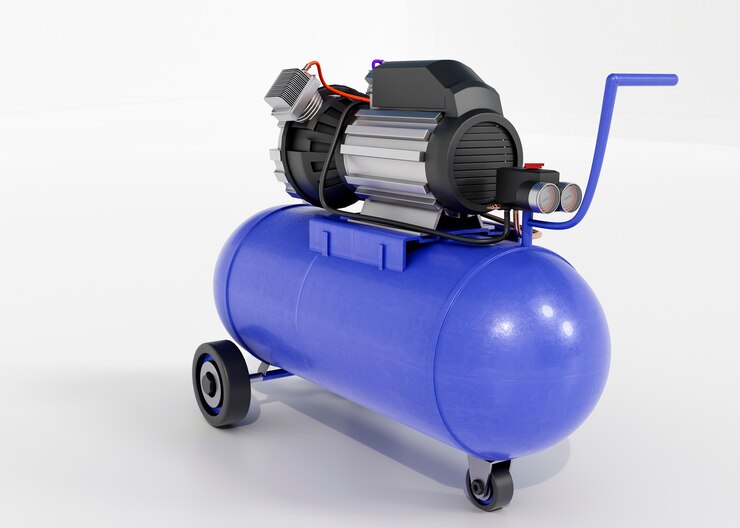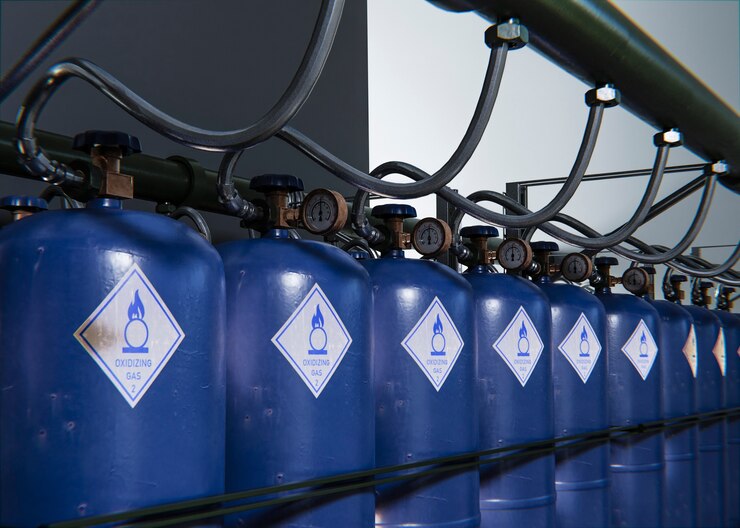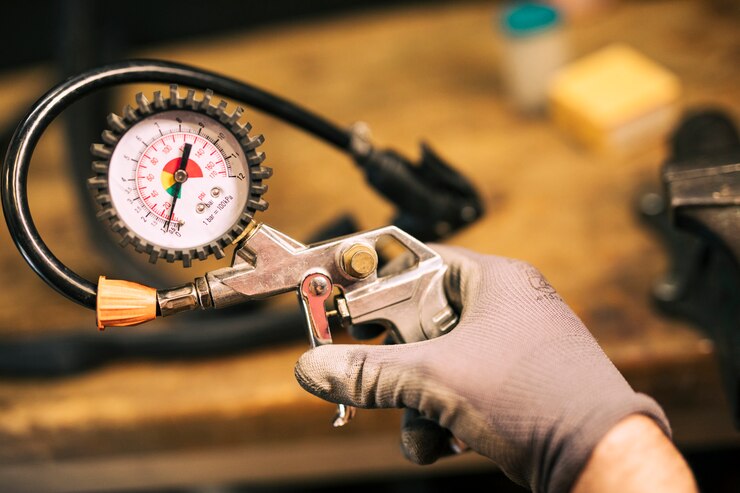Oil-Free Industrial Compressors: Benefits and Applications
Oil-free industrial compressors are becoming increasingly popular in a variety of industries. These compressors are designed to operate without oil in the lubricating chamber, which eliminates the chance of contamination downstream. This means that there is no chance that your end-product and application will be contaminated by oil.

Oil-free compressors are particularly useful in industries such as food and beverage, pharmaceuticals, and electronics, where air purity is of utmost importance. In these industries, even the smallest amount of oil contamination can have serious consequences. Oil-free compressors provide a reliable and efficient solution to this problem. Additionally, oil-free compressors require less maintenance than traditional oil-lubricated compressors, which can save companies time and money in the long run.
Understanding Oil Free Industrial Compressors
Oil-free industrial compressors are a type of air compressor that does not use oil in the compression chamber. Instead, they use other materials such as Teflon or other synthetic materials to lubricate the moving parts. This makes them ideal for applications where oil contamination is not acceptable, such as in the production of food, pharmaceuticals, and electronics.
One of the key advantages of oil-free industrial compressors is that they produce clean, dry air that is free of oil and other contaminants. This makes them ideal for use in applications where clean air is critical, such as in the production of semiconductors or in the medical industry.
Another advantage of oil-free industrial compressors is that they require less maintenance than oil-lubricated compressors. Since there is no oil to change or filters to replace, the maintenance requirements are minimal. This can result in lower operating costs over the life of the compressor.
However, there are some disadvantages to oil-free industrial compressors as well. For example, they tend to be noisier and generate more heat than oil-lubricated compressors. They also have a shorter lifespan and are not as well-suited for heavy-duty use.
Overall, oil-free industrial compressors are an excellent choice for applications where clean, dry air is critical and oil contamination is not acceptable. They offer a number of advantages over oil-lubricated compressors, including lower maintenance requirements and cleaner air output.
Types of Oil Free Compressors
Oil-free compressors are machines that do not require oil to lubricate the moving parts of the compressor. This eliminates the need for oil changes and reduces maintenance costs. There are three main types of oil-free compressors: scroll compressors, screw compressors, and centrifugal compressors.
Scroll Compressors
Scroll compressors are a type of positive displacement compressor that use two interleaving scrolls to compress air. The scrolls are made of a stationary and a rotating element. The air is trapped between the scrolls and compressed as the scrolls move towards each other. Scroll compressors are known for their quiet operation, low maintenance, and high efficiency. They are commonly used in applications that require low noise levels, such as medical equipment and laboratories.
Screw Compressors
Screw compressors are another type of positive displacement compressor. They use two helical rotors to compress air. The rotors are made of a male and a female element. The air is trapped between the rotors and compressed as the rotors rotate. Screw compressors are known for their high efficiency, reliability, and low maintenance. They are commonly used in applications that require high volumes of compressed air, such as manufacturing plants and automotive workshops.
Centrifugal Compressors
Centrifugal compressors are a type of dynamic compressor that use a high-speed impeller to compress air. The impeller is mounted on a shaft and rotates at high speeds. The air is drawn into the center of the impeller and accelerated towards the outer edge. As the air moves towards the outer edge, it is compressed by the centrifugal force. Centrifugal compressors are known for their high flow rates, low maintenance, and high reliability. They are commonly used in applications that require large volumes of compressed air, such as power plants and oil refineries.
In summary, each type of oil-free compressor has its own unique advantages and disadvantages. The choice of compressor depends on the specific requirements of the application.
Benefits of Oil Free Compressors
Oil-free air compressors offer several benefits that make them a popular choice in many industries. Here are some of the main advantages of using oil-free compressors:
1. Eliminate Product Contamination
In industries where cleanliness standards are mandatory for quality production, oil-free air compressors are a must-have. The oil-free compressor technology eliminates the possibility of oil compromising food, pharmaceutical, or electronic products. Oil contamination can lead to costly product recalls, which can damage a company’s reputation. By using oil-free compressors, companies can ensure that their products meet the highest standards of quality and safety.
2. Lower Maintenance Costs
Oil-free compressors require less maintenance compared to oil-lubricated compressors. They have fewer ancillary air system components to maintain, longer timeframes between oil changes, and no expensive oil filters to clean the compressed air. This reduces maintenance costs and downtime, leading to higher productivity and profitability.
3. Environmentally Friendly
Oil-free compressors are environmentally friendly since they do not use oil, which can contaminate the air and water. They also produce less noise and heat, making them ideal for indoor use. This reduces the need for costly soundproofing and ventilation systems, leading to lower energy costs and a smaller carbon footprint.
4. Improved Air Quality
Oil-free compressors produce clean, dry air that is free of oil and other contaminants. This improves the air quality in the workplace, reducing the risk of respiratory problems and other health issues. Oil-free compressors are also ideal for applications that require clean air, such as painting, powder coating, and electronics manufacturing.
In summary, oil-free compressors offer several benefits that make them an attractive choice for many industries. They eliminate product contamination, lower maintenance costs, are environmentally friendly, and improve air quality. Companies that use oil-free compressors can enjoy higher productivity, profitability, and customer satisfaction.
Applications of Oil Free Compressors

Oil-free industrial compressors are widely used in various applications due to their ability to deliver clean and uncontaminated compressed air. These compressors are commonly utilized in industries such as food and beverage processing, pharmaceutical manufacturing, chemical and petrochemical processing, fermentation, and wastewater treatment. The oil-free nature of these compressors makes them suitable for applications where air quality is critical, such as in the production of sensitive products like food, beverages, and pharmaceuticals.
In addition to these industries, oil-free compressors are also utilized in pneumatic conveying systems, where the purity of the compressed air is essential to prevent contamination of the conveyed materials. The reliability and efficiency of oil-free compressors make them an ideal choice for applications that demand high-quality compressed air without the risk of oil contamination.
Maintenance and Safety Guidelines

Maintenance is an essential part of ensuring that an oil-free industrial compressor runs smoothly and efficiently. Regular maintenance can help prevent costly downtime and extend the compressor’s lifespan. Here are some general maintenance guidelines to follow:
- Inspect the compressor daily: Inspect the compressor for any signs of damage, leaks, or wear and tear. Check the oil level and ensure that all safety features are working correctly.
- Replace the air filter regularly: A dirty air filter can reduce the compressor’s efficiency and cause damage to the compressor. Replace the air filter according to the manufacturer’s recommendations.
- Check the oil level: Check the oil level regularly and add oil as needed. Use the recommended oil type for the compressor.
- Keep the compressor clean: Keep the compressor clean and free of debris. Dirt and debris can cause damage to the compressor and reduce its efficiency.
- Schedule regular maintenance: Schedule regular maintenance with a qualified technician. Regular maintenance can help prevent costly repairs and extend the compressor’s lifespan.
Safety is also an essential consideration when operating an industrial compressor. Here are some general safety guidelines to follow:
- Read the manufacturer’s instructions: Read the manufacturer’s instructions and follow all safety guidelines.
- Wear appropriate safety gear: Wear appropriate safety gear, including eye and ear protection, when operating the compressor.
- Keep the compressor away from flammable materials: Keep the compressor away from flammable materials, such as gasoline and solvents.
- Turn off the compressor when not in use: Turn off the compressor when not in use and disconnect it from the power source.
- Train employees on compressor safety: Train employees on compressor safety and ensure that they follow all safety guidelines.
By following these maintenance and safety guidelines, an oil-free industrial compressor can provide reliable and efficient performance for years to come.
Frequently Asked Questions

How does an oil-free compressor operate?
An oil-free compressor operates by compressing air without the use of oil for lubrication in the pump’s compression mechanism. Instead, the mechanical components are typically coated with a permanent lubricant material such as Teflon. This lack of oil gives these compressors several advantages, including less maintenance and reduced risk of oil contamination in the compressed air.
What are the benefits of using a portable oil-free air compressor?
Portable oil-free air compressors offer several benefits, including flexibility in usage, ease of transport, and reduced maintenance. These compressors are ideal for construction sites, remote locations, and emergency situations where a reliable source of compressed air is needed.
Can oil-free air compressors be used effectively for diving purposes?
Oil-free air compressors can be used effectively for diving purposes. However, it is important to ensure that the compressor is designed specifically for diving applications and meets the necessary safety standards. Additionally, proper maintenance and regular inspection are essential to ensure the compressor is functioning correctly and providing clean, dry air.
What advantages does an oil-free air compressor with a dryer offer?
An oil-free air compressor with a dryer offers several advantages, including the ability to deliver clean, dry air with minimal maintenance. The dryer removes moisture from the compressed air, reducing the risk of corrosion and damage to downstream equipment. Additionally, the dryer can help improve the quality of the compressed air, making it suitable for sensitive applications such as food processing and pharmaceutical manufacturing.
Are oil-free air compressors suitable for dental applications?
Oil-free air compressors are suitable for dental applications, as they provide clean, dry air that is free from oil contamination. This is essential for preventing infection and ensuring the safety of patients. Additionally, oil-free compressors are quieter and require less maintenance than oil-lubricated compressors, making them an ideal choice for dental practices.
What makes Atlas Copco’s oil-free air compressors distinct in their operation?
Atlas Copco’s oil-free air compressors are distinct in their operation due to their advanced design and innovative technologies. These compressors utilize a variety of features such as water-injected screw technology, integrated dryers, and energy-efficient motors to provide reliable, high-quality compressed air. Additionally, Atlas Copco’s compressors are designed with sustainability in mind, using materials and technologies that minimize environmental impact.



